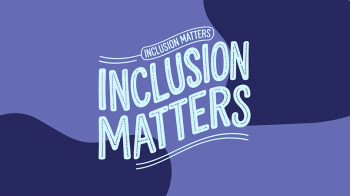Italian language tests are a vital element in the process of educating and mastering this beautiful and melodious language. They help determine the stage of knowledge, identify gaps in grammar, glossary, and pronunciation, and motivate further learning as well. The variety allows for the evaluation of all parts of language masteries: reading, writing, listening, and speaking.
Systematic testing contributes to disciplined and purposeful studying, helps analyze progress, and adjust study plans. Additionally, passing tests is often a prerequisite for obtaining certificates, entering educational institutions, or securing employment abroad.
The Role of Testing in Learning Italian
Testing plays a key role in gaining Italian, as it allows for an objective assessment of knowledge levels and identifies fields that need enhancement. Firstly, regular grammar tasks help students track their progress, enabling timely adjustments to study plans and focusing on weak areas. Secondly, assignments motivate more diligent studying by providing a sense of achievement and overcoming new challenges. Thirdly, they develop self-control and self-discipline skills, which are crucial in the learning process.
Why Testing is Necessary:
- Helps assess current knowledge.
- Identifies weak spots.
- Increases motivation to learn.
- Assists in planning the learning process.
- Promotes better self-organization and knowledge control.
Testing also helps teachers accurately assess each student's level and adapt teaching methods to individual needs, making the learning process more effective and personalized. Boost your knowledge and guts with experienced tutors from TeMa – start searching now!
Overview of Test Types and Their Impact on Language Proficiency
There are a wide range of test types, each assessing various aspects of language competence and having its impact on the knowledge degree. Firstly, there are grammar tests that check the rules and constructions comprehending. These can also be beginner tests covering basic cases and questions, helping to consolidate grammatical skills and advance language structure understanding. Secondly, lexical tasks evaluate glossary and the capability to utilize words in context.
Listening tests assess the ability to understand spoken Italian, which is crucial for developing skills in perceiving and comprehending the language in real-life situations. Reading and comprehension tasks are also important components of testing. These tests help improve reading skills and understanding of written texts. Finally, speaking tests evaluate communicative skills.
Each of these types has its impact on the overall level of language proficiency. Regularly taking various tests helps develop all aspects of language competence in a balanced manner, ultimately leading to a higher level of Italian proficiency. The TeMa tutor search service offers a variety of lessons – start learning now!
Preparing for Tests: Effective Strategies for Preparing for Grammar and Vocabulary Challenges
Preparing requires a systematic and targeted approach. Firstly, it is important to practice regularly, focusing on both grammar and vocabulary. Divide study time into small, but regular sessions to avoid overload. Occasionally, take tests with answers to ease the thought process and understand the rules. Secondly, use diverse learning materials: books, online courses, apps, and audio recordings. This helps diversify the learning process and make it more interesting.
The third strategy is error analysis. After each test, carefully analyze your mistakes and try to understand what exactly went wrong. The fourth tip is to practice with native speakers, either through language clubs or online language exchange platforms.
The fifth aspect is psychological preparation. Tests can cause stress, so it is important to learn how to manage your emotions. Practicing meditation, breathing exercises, and maintaining the right mindset can help reduce anxiety and boost confidence. Additionally, it is useful to take an online task to get used to the format and timing of the exam. By combining these strategies, you can significantly improve your chances of successfully passing assignments.
Methods for Successful Preparation for Grammar and Vocabulary Tests
It is important to regularly review grammatical rules and learn new ones using textbooks, online courses, and specialized apps. Secondly, actively expand your vocabulary with flashcards, word lists, and thematic texts.
The third key method is practicing with mock tests, which helps you get used to the exam format and improve your skills in completing tasks within a limited time. The fourth method is communicating with native speakers, both in real life and through online platforms. Live communication improves language comprehension and develops communicative skills. The fifth method is error analysis. After each one, carefully study your mistakes and work on correcting them.
Additional methods for preparing for tests include:
- keeping a blog to stimulate regular language use and develop written and spoken skills.
- participating in online games, quests, or board games to remember information in a relaxed format;
- listening to songs in the Italian language to better figuring out of spoken one;
- practicing translation of texts from your native language to the target language to better understand its structure and nuances;
- taking part in language marathons or challenges to create motivation and structure the learning process.
These strategies can make the language learning process more diverse and engaging, contributing to deeper immersion in the language environment. Take the first step to success with TeMa: find the perfect tutor and achieve the best results.
Common Mistakes When Taking Tests and How to Prevent Them
When taking tests, students often make common mistakes that can significantly lower their results. One of the most frequent mistakes is the incorrect use of grammatical constructions. To avoid this, it is important to regularly review the rules and practice applying them.
Students also often confuse verb forms and forget about tense agreement. This can be prevented by paying more attention to practice and review. Another common mistake is inattentiveness when reading and completing tasks. To avoid this, it is important to learn to carefully read task instructions and double-check your answers before submitting the study.
Finally, many students experience stress and anxiety, which negatively affects their results. To prevent this, it is important to learn how to manage emotions and prepare psychologically for the exam. For example, you can find an online quiz and practice it to get used to all the nuances and learn to control your time.


-preview.png)